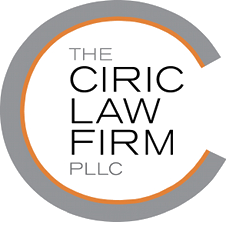As the COVID-19 global health crisis impacts U.S. businesses in all industries and Americans in their daily lives, states have reacted quickly to manage the health and economic effects of the pandemic.
As of this article’s publication date, the New York Executive Branch has taken a number of initiatives over the past couple of weeks which may significantly affect your legal rights. Below is a description of some of the major steps taken by the NY Governor’s office.
New York Governor Cuomo’s “New York State on PAUSE” Executive Order
Effective at 8 pm on Sunday, March 22, 2020, all non-essential businesses statewide should have closed all in-office personnel functions. See Gov. Cuomo’s Exec. Orders 202.6 and 202.7.
What constitutes an “essential business or entity” not subject to any of those restrictions is described in a detailed guidance issued by the New York Governor’s office, as well as the Empire State Development Corporation. This guidance, along with associated FAQs include a list of what is deemed an “essential business or entity.”
If your business category is not listed in the guidance, but you believe that your business or entity provides essential services or functions, you may request a designation as an essential business from New York State. However, such requests should only be submitted to New York State if your business or entity is EXPLICITLY NOT included in the guidance.
Allowing Video-based Notarization Procedures in New York
Under Gov. Cuomo’s Exec. Order 202.7, and until April 18, 2020, notaries in New York State may witness a signature via live video conference rather than in person under specific electronic signature procedures. As a general rule, notaries in New York had to witness a signature in person under all circumstances. 19 NYCRR § 182.1. Therefore, this change is very significant in mortgage transactions, executing power of attorney, will documents, or other court-required affidavits. The New York State Academy of Trial Lawyers has provided a very comprehensive checklist to assist notary publics in how to E-notarize documents.
Temporary Suspension of State Debt collections in New York
On March 17, 2020, Gov. Cuomo and NY State Office of the Attorney General Laetitia James (“OAG”) announced that, as of that date, the collection of medical and student debt owed to the State of New York and referred to the OAG for collection is suspended for at least a 30-day period through April 15, 2020. After this 30-day period, the OAG will reassess the needs of state residents for a possible extension. This policy applies only to debt owed to the State of New York, and not to federally-owed debt, such as federally-provided student loans or private debt, such as car loans.
Additionally, the OAG will accept applications for suspension of all other types of debt owed to the State of New York and referred to the OAG for collection. According to the policy published by the OAG, no affirmative application is necessary for medical or student debt owed to New York State. However, for all other debts owed to the State of New York, an application must be submitted to the OAG to seek the suspension of collection efforts.
Tolling of Statutes of Limitation in New York
To accommodate significant restrictions in the way New York courts are expected to function over the next few weeks, Gov. Cuomo’s Exec. Order 202.8, issued March 20, 2020, tolls statutes of limitations for any legal action until April 19, 2020. This means that, for any legal claim which would have had to be filed by a legal deadline between March 19, 2020 and April 19, 2020, that deadline is suspended until after April 19, 2020. It is important to keep in mind that any legal action dependent upon a federally-defined statute of limitations is not impacted by this order. This sweeping decision has triggered a policy change by most New York Courts, which are, for the most part, suspending most trials and legal actions, EXCEPT for those which the New York court system considers “essential proceedings,” as defined in a recent memorandum dated March 22, 2020 and circulated by the Chief Administrative Judge of the New York Courts. Essential proceedings involve, among others, criminal cases, family matters, and certain housing cases.
Across the board, both state and federal courts in New York, have put in place strict measures in terms of court access and processing of essential cases but they have not engaged in a complete shutdown of the court system.
As to specific court operations for most state and federal courts in New York, the New York State Academy of Trial Lawyers is maintaining a comprehensive list of court orders on its website which should be consulted would you have any questions about the specifics of a particular New York jurisdiction.
By: Pierre Ciric, Esq.
Member of the Firm, the Ciric Law Firm, PLLC
This material is for general information purposes only and should not be construed as legal advice or any other advice on any specific facts or circumstances. No one should act or refrain from acting based upon any information herein without seeking professional legal advice. The Ciric Law Firm, PLLC makes no warranties, representations, or claims of any kind concerning the content herein. The Ciric Law Firm, PLLC and the contributing presenters or authors expressly disclaim all liability to any person in respect of the consequences of anything done or not done in reliance upon the use of contents included herein.
This material is subject to the copyright laws of the United States and cannot be reproduced without the prior written permission of the Ciric Law Firm, PLLC. Copyright © 2020
